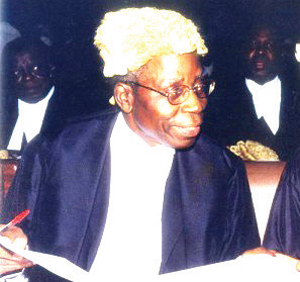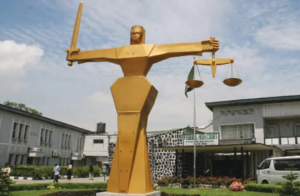
Funsho Adegbola, the daughter of the late Chief Bola Ige, has shared chilling details about the events leading up to her father’s assassination, including unsettling premonitions and political tensions. Ige, who was Nigeria’s Minister of Justice and Attorney General of the Federation, was murdered in his Ibadan home on December 23, 2001.
Speaking during an interview on State Affairs with Edmund Obilo, Adegbola revealed how a dream of mourning and dressing in black foreshadowed the tragedy. Disturbed, she confided in her father, whose response was both reassuring and ominous: “Nobody can kill me; my life is in God’s hands.”
Days before his death, an unusual incident occurred at the palace of the late Ooni of Ife, Oba Okunade Sijuade, during a chieftaincy ceremony for Chief Stella Obasanjo. Ige’s cap was mysteriously removed, an act he described as unprecedented in his political life.
Adegbola painted a picture of her father as a man of integrity and simplicity. She recounted how, as Minister of Power and Steel, he returned 16 official cars, saying, “I can’t maintain more than two cars.” His modest lifestyle extended to his home, which lacked sophisticated security features.
Despite increasing threats, Ige maintained a steadfast faith. When warned about a possible attack, he responded, “I am surrounded by the White Light of Christ through which nothing evil can penetrate.” Adegbola linked the threats to her father’s political battles, particularly with then-Deputy Governor of Osun State, Iyiola Omisore, amid rising tensions during Governor Bisi Akande’s administration.
The unresolved nature of Ige’s murder has left a deep scar on his family. Adegbola lamented the irony that her mother, a Court of Appeal Justice, could not secure justice for her husband.
In her memoir, He Gave Me Wings, Adegbola highlighted her father’s enduring legacy of courage, integrity, and selfless service. “He believed that anything worth living for is worth dying for,” she said, emphasizing that his values continue to inspire even as justice for his death remains elusive.
Bola Ige’s assassination remains one of Nigeria’s most tragic and unresolved political killings, leaving behind a legacy that challenges current governance standards.








